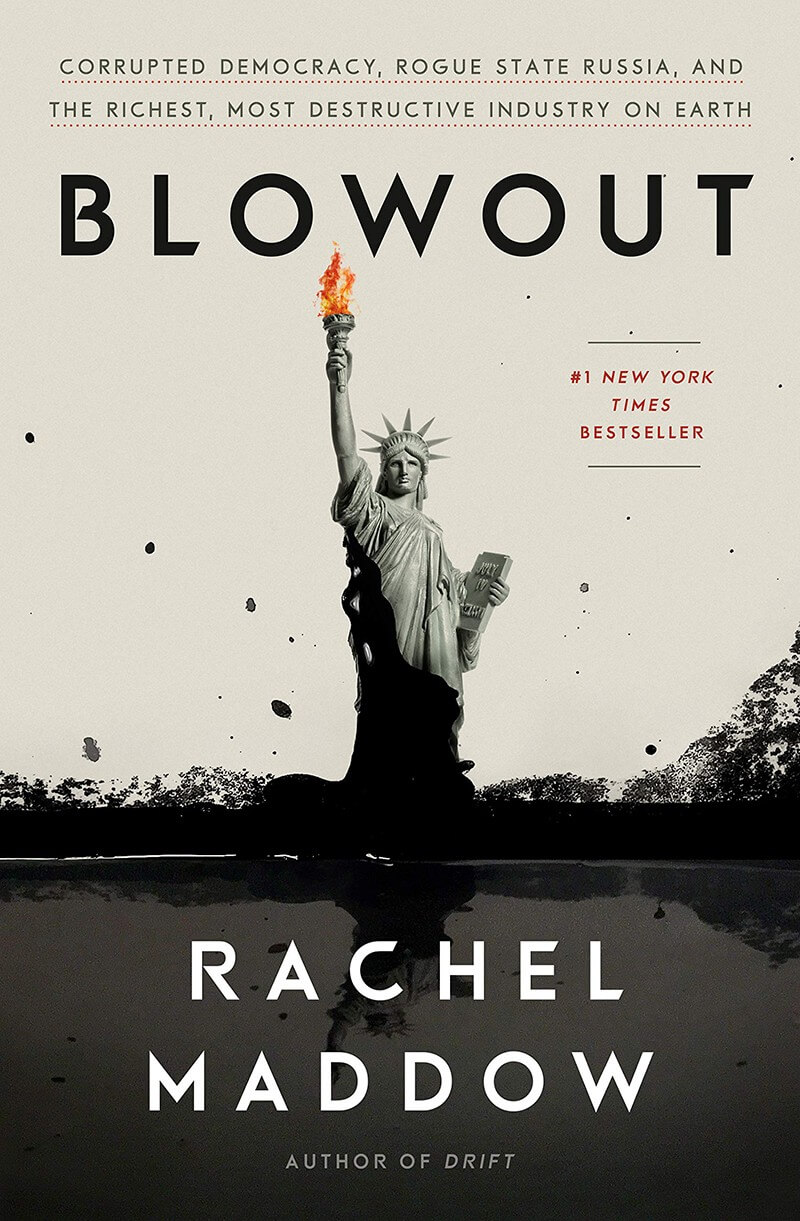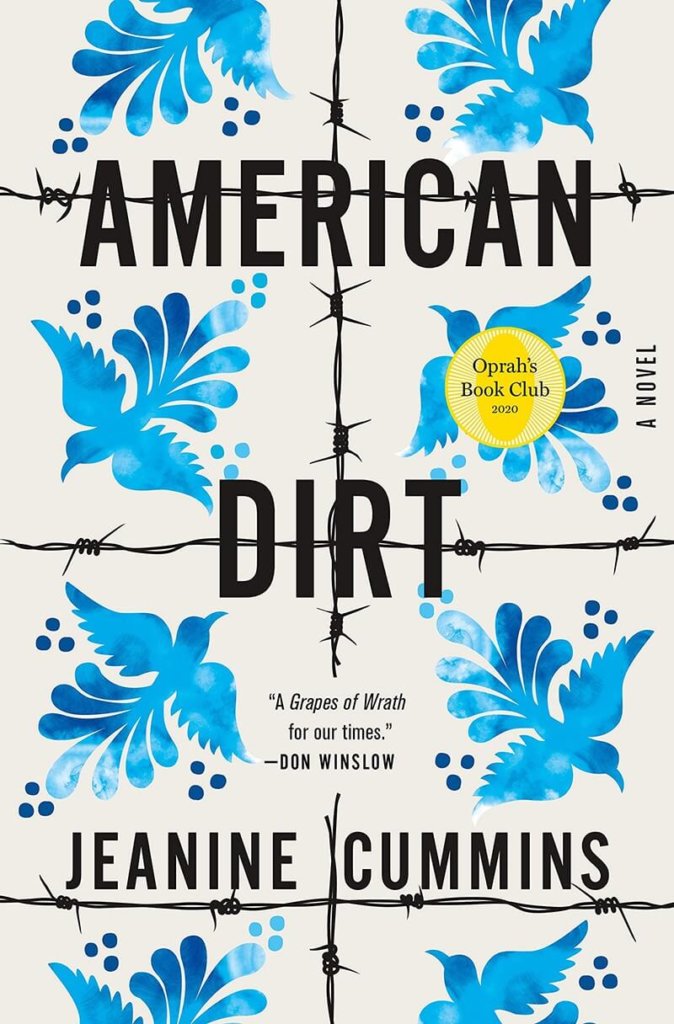Books for spring to make you think
Valentine’s Day has passed, the groundhog has come and gone, Presidents’ Day is over, and life goes on, and sometimes it snows. Some of us have flown to warmer spots and posted pictures of turquoise seas, swaying palms, and frolicking loved ones. Some of us are staying put. Most of us have been sick, with one thing or the other, at least once at this point. It’s February in Vermont.
And whether you’ve been curled up on your couch with a toasty fire in the grate or flying to a Caribbean Island, swaying in a hammock with a Planter’s Punch balanced on your belly or waiting for the dentist, many of you have been reading. Reading…something.
 I’ve read a few things since we last spoke. One is Rachel Maddow’s “Blowout,” which will pretty much blow your mind. I am listening to it, actually, and it is taking forever. I started it before Christmas and I’m still not done. But wow. It’s kind of like that scene from “The Wizard of Oz” when Toto inadvertently knocks over a screen and reveals that the great and powerful, awe-inspiring wizard is nothing but a nervous white male senior citizen pulling a bunch of levers in a back room. Which suddenly seems so benign, now that I think about it, compared to what is revealed in this blockbuster.
I’ve read a few things since we last spoke. One is Rachel Maddow’s “Blowout,” which will pretty much blow your mind. I am listening to it, actually, and it is taking forever. I started it before Christmas and I’m still not done. But wow. It’s kind of like that scene from “The Wizard of Oz” when Toto inadvertently knocks over a screen and reveals that the great and powerful, awe-inspiring wizard is nothing but a nervous white male senior citizen pulling a bunch of levers in a back room. Which suddenly seems so benign, now that I think about it, compared to what is revealed in this blockbuster.
Putin throwing successful oil and gas CEOs in jail so that he can seize their companies and reap the profits for himself…Rex Tillerson flirting with Russian oligarchs on behalf of ExxonMobil…disastrous drilling ventures in the arctic…transnational pipelines…massive oil spills…fracking-induced “earthquake swarms” and the scramble to conceal evidence that they are not in fact naturally occurring…the hushing of scientists who discern the truth…all kinds of craziness and corruption. It’s enough to make you run out and buy a Tesla. Or put up solar panels. Or get yourself a windmill. I’m telling you, this stuff is sick.
The power of Big Oil and Gas is shocking. The industry has weakened democracies, polluted rivers and oceans, propped up murderous, thieving dictators, and that’s not even the half of it. But being outraged about it, says Maddow, “is like being indignant when a lion takes down and eats a gazelle. You can’t really blame the lion. It’s in her nature.” The industry, she writes, “is essentially a big casino, that can produce both power and triumphant great gobs of cash, often with little regard for merit.” If you want a glimpse of what’s going on behind the scenes, if you want the inside scoop, and you don’t mind a lot of detail and a fair amount of disillusionment, Rachel Maddow is your gal. She is brilliant and thorough and indomitable and has a crazy knack for unpacking what’s going on in the world so we can see what the hell is in the suitcase. And in the case of the oil and gas industry, let me just sum things up by saying: it ain’t pretty.
But somehow, despite the horrors, the trickery, the sleight-of-hand, the greed, the cover-ups and the corruption, this book is quite entertaining, almost madcap at times. There are some particularly bizarre and amusing parts—one about some rather inept Russian spies living as Americans in east coast suburbia—and some rollickingly colorful characters, including personable and charming billionaire Aubrey McClendon, founder and CEO of American Energy Partners, and fracking pioneer, who in 2016 was indicted by a federal grand jury on charges of conspiring “to rig bids for the purchase of oil and natural gas leases in northwest Oklahoma,” the day before he died in a single-vehicle collision. I mean, you can’t make this stuff up. Probably not the best beach read. But I highly recommend it. (I’m loving the audio version, read by Maddow herself.)
 Another book I don’t recommend for the beach, but which I absolutely recommend generally, is “American Dirt” by Jeanine Cummins—a novel about a young woman named Lydia who lives in Acapulco, Mexico. Happily married to a journalist, she has a young son and works in a bookstore. To make a long and difficult, heartbreaking, grueling story short, her husband writes an expose of a drug lord (a drug lord Lydia happens to know, because he frequents her store), and…well, I don’t want to spoil this any more than I already have, but after something really bad happens, Lydia and her eight-year-old son have to flee the city, flee the country, and this is their story. The reason I don’t recommend this for the beach is that this tale is really exhausting to read, or I found it so. Not because it is boring or badly written (it is actually very exciting and very well written) but because it is so in-your-face awful what this mother and her son, and the many migrants they meet and observe on their journey, have to endure as they journey away from danger towards hoped-for safety, shelter and freedom in this country we call America.
Another book I don’t recommend for the beach, but which I absolutely recommend generally, is “American Dirt” by Jeanine Cummins—a novel about a young woman named Lydia who lives in Acapulco, Mexico. Happily married to a journalist, she has a young son and works in a bookstore. To make a long and difficult, heartbreaking, grueling story short, her husband writes an expose of a drug lord (a drug lord Lydia happens to know, because he frequents her store), and…well, I don’t want to spoil this any more than I already have, but after something really bad happens, Lydia and her eight-year-old son have to flee the city, flee the country, and this is their story. The reason I don’t recommend this for the beach is that this tale is really exhausting to read, or I found it so. Not because it is boring or badly written (it is actually very exciting and very well written) but because it is so in-your-face awful what this mother and her son, and the many migrants they meet and observe on their journey, have to endure as they journey away from danger towards hoped-for safety, shelter and freedom in this country we call America.
Oprah Winfrey announced “American Dirt” as her new book club pick on January 21, saying that this story “changed the way I see what it means to be a migrant in a whole new way.” Soon after, questions and criticisms about the books’ representation of Mexican migrants started to percolate and boil. Days later, Oprah commented that the “outpouring … of very passionate opinions” had created a need “for a deeper, more substantive discussion.” Online critics have accused Cummins (who identifies as white and Latina) of being opportunistic and exploiting the actual migrant experience into “trauma porn” for the predominantly white publishing machine. Members of the Latinx community say they have been excluded and systematically erased from the publishing ecosystem. No doubt, the ongoing discussion is an important one, and I have not researched it all as well as I might, but I have to say, I really, really liked this novel, and it absolutely made me more aware of some of the issues surrounding immigration and the catch 22 of living under desperate, life-threatening conditions and enduring the kind of dangerous, spirit-crushing odyssey described in this novel. Despite the violence and hardship, the constant fear and the ever-lurking threat of revenge, this book is also about courage, community, and love. It’s also about hope and endurance. An epigraph from Pablo Neruda’s “The Song of Despair” reads,
“There were thirst and hunger, and you were the fruit.
There were grief and ruins, and you were the miracle.”
Wrenching and transformative, this is a worthwhile read.
Stay warm and well. And always, happy reading.

